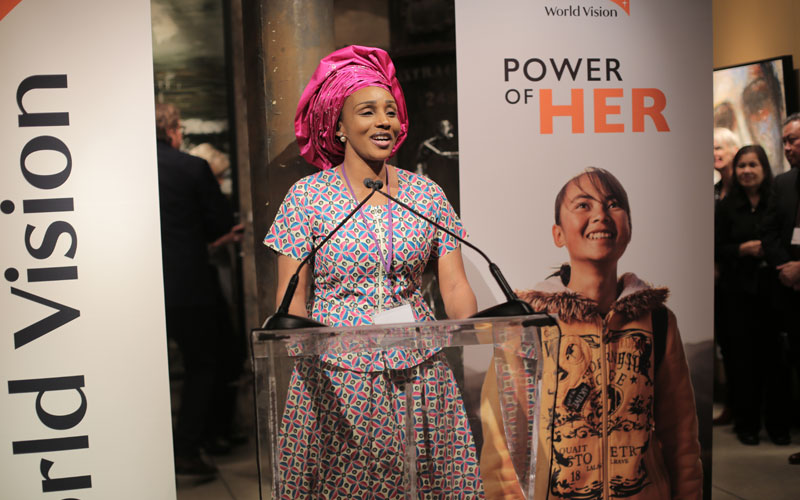When you consider the phrase,
Power of Her, what image comes to mind?
I imagine Nellie McClung, Rosa Parks, Ruth Bader Ginsberg, Marie Curie and Malala Yousafzai. I imagine strong, courageous women who have taken up positions that are not allocated to them but are positions where they indeed belong.
That is
Power of Her. It is a movement that aims to create space for girls. Space to learn, to heal, to participate. Space for girls to express themselves, with opportunities for the community at large to hear what is of importance to them.
Power of Her is about women taking their rightful place as change agents for future generations.
One of these women is Alia Anakrh: Jordanian. Humanitarian. Civil Engineer.
At the launch event for
Power of Her last month
, Alia took part in a panel of women speaking on the importance of girls’ education.
I had the opportunity to meet Alia and learn more about her fascinating story. Prior to our scheduled interview time, I introduced myself and noticed her sweatshirt straight away. Boldly written across the front was the phrase,
FEMME POWER. I knew immediately I was going to like her.
At age 18, along with a high GPA and a love of science and math, Jordanian-born, UAE-raised Alia left her family to return to Jordan, where she joined her siblings in finishing their university education. Her family was supportive of her desire to study Civil Engineering, but the voices of others quickly began to question her decision.
“They didn’t understand that there are many types of engineering,” Alia told me. “Many people think that a Civil Engineer would [only] work in the harsh sun and dirt. But Civil Engineering has many branches and you have to figure out what your interest is.”
Although Alia could have followed any one of these paths, her passion was buildings – so she became a Structural Engineer. When I asked why she chose this career, her answer was simple: “Maybe curiosity is the simplest answer. Ever since I was young, I’ve been curious about everything. I was curious about buildings…about how things were constructed.”
Even though her studies were relatively unencumbered, working in the field as a female has not always been easy.
“I knew from the first time I applied to be a Civil Engineer that it was not okay for me [as a female] to do so. I knew there was a challenge and I accepted the challenge. I like the way that people look at me when I am on site. Like, ‘you are a female and you’re doing this?’ Yes, I am. And no, I won’t stop, I will complete this. I won’t stop.”
And she is not stopping. Because of the
influx of Syrian families into Jordan, schools and public spaces are overcrowded. Alia, working with World Vision Jordan thanks to NOUR (meaning light, in Arabic), a Global Affairs Canada funded project that supports education, child protection and economic resilience for Syrian refugees and Jordanians, builds girl-friendly spaces across communities that have been particularly affected by the Syrian refugee crisis.
Alia firmly believes it is important to create spaces where both Jordanians and Syrians can come together. “We are working to make Jordanians accept that there is a crisis in Syria and make them understand that everyone should be involved together in the community.”

"Strong people fight for themselves, but stronger people fight for others. That’s what World Vision is and that’s what Canadians are," Sabine Lwamba, a volunteer from DRC, said at the launch of Power of Her in Toronto. Photo: Jen Chou
The goal of NOUR is to shine light on the future of vulnerable children, their families and communities, and to ensure that all children are protected, safe and have the right to continue their education, even though they have been displaced from their homeland. The schools, with additional classrooms, bathroom facilities and even outdoor parks and child-friendly spaces that Alia designed, ensure that parents of girls feel safe sending their daughters to school and that all children continue to receive an education.
I asked Alia what she would tell her teenage self: “Work more, prioritize your life and your responsibilities. Don’t give anyone a chance to make you step back.”
We trust that—with you—
Power of Her will enable girls in the world’s most vulnerable places to believe the exact same thing.